5 min read
Scott Millwood on The Hidden Value of Prototypes
Yesflow CEO Scott Millwood explains how tech startups can use codeless mockups to build customer loyalty and user engagement. This post is...
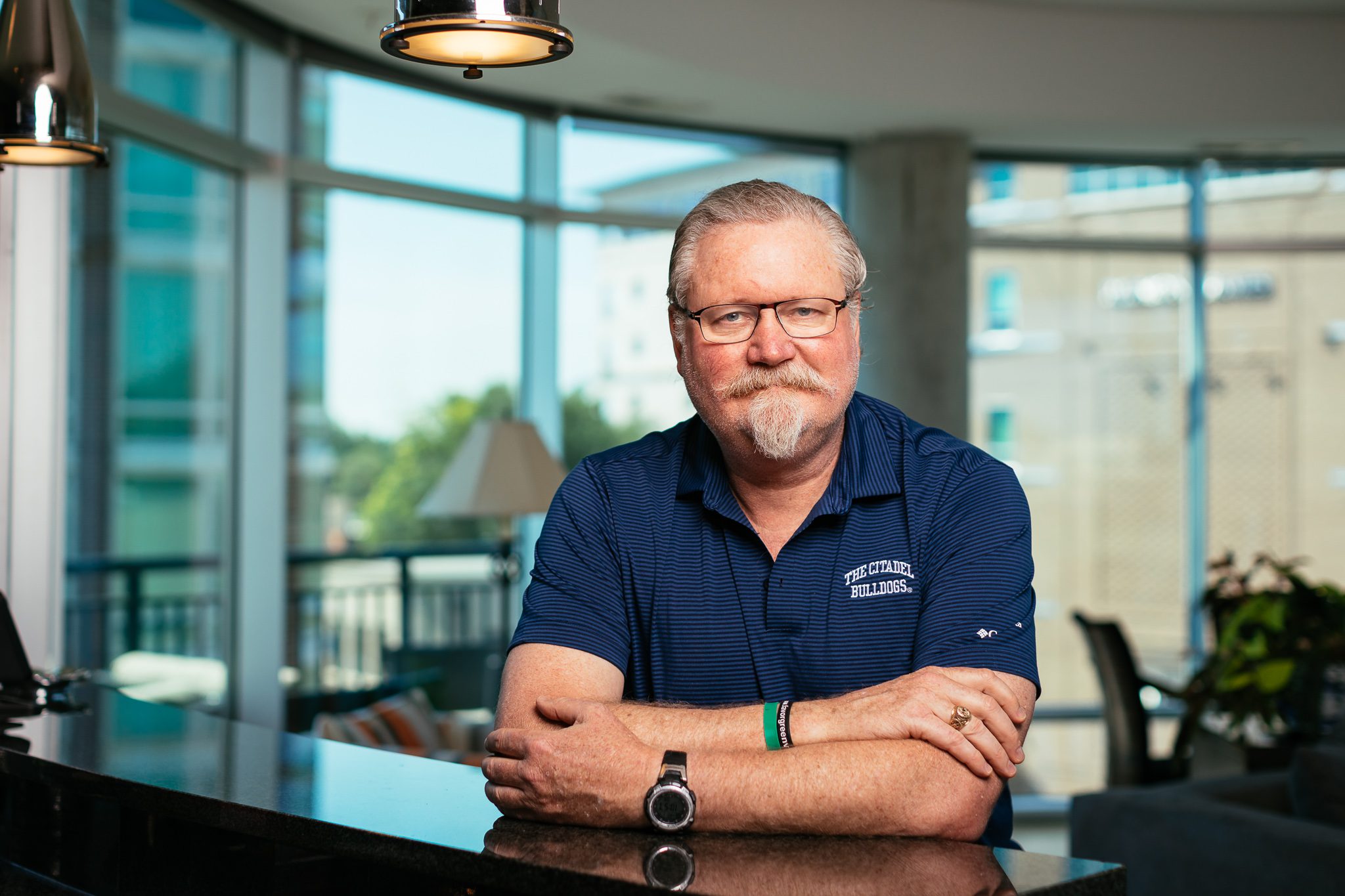
John Sterling is the Owner of Foxfire, a warehouse software provider and ScanSource partner consistently ranked as a Top 100 Logistics IT Provider in the warehouse space. He was also a Founder of one of the biggest tech companies in SC, Datastream, which he grew to 1000+ employees and helped sell to Infor in 2006 for $200MM. To date, the sale has resulted in over 65 new CEOs, business owners, and Senior Sales VPs. Outside of Foxfire, Sterling is an active investor, sales coach, amateur jazz musician, parent of three, and self-proclaimed “empty nester” with his wife Jennifer.
This post is part of The Founder Factor, where we bring you behind the scenes with South Carolina’s most impactful entrepreneurs so that you can discover the strategies, ideas, and mindsets you need to unlock your next business breakthrough.
“What do you think about going remote?”
The question made their day. Many of Foxfire’s employees had been working 9-5 office jobs their entire lives. They had never dreamed that their boss – the company’s CEO, nevertheless – would give them the choice between working from home and working from the office.
John Sterling, owner of Foxfire and one of Greenville’s leading tech entrepreneurs, recalls the moment he decided to give his employees this option. “It occurred to me that a third of my team – the technical specialists – were already remote. And another third were contractors. They weren’t here, either.”
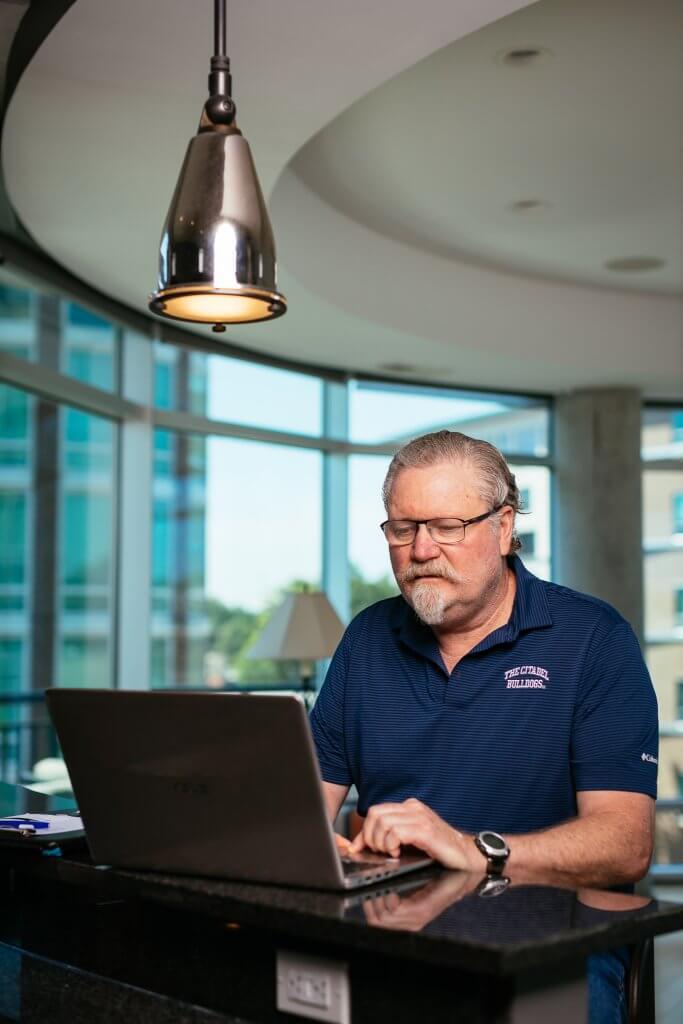
Sterling remembers looking at the remaining third and realizing they all lived in Simpsonville.
“It was so dumb. These people – just because I told them to – would get up at 6:30 AM, wear nice long pants, and commute into Greenville to be in the office for the 8 AM staff meeting. Then I would go about my merry way, and they would sit at their computers typing all day.”
Now that his team has transitioned to full-time remote work, Sterling can’t imagine going back to the “old model” – even after the COVID-19 pandemic has subsided. His employees don’t want to, either.
“I’ve never seen them so excited,” Sterling says as he reflects on the moment he asked his employees about the proposed work-from-home policy. “They are happier now that they don’t have that wasted couple of hours commuting back and forth. I think they prefer me in smaller doses, too.”
Sterling’s employees have also enjoyed the complete focus their home situations afford. “In the office, at least a couple of times a day, somebody like me would come by their desks and say ‘Hey, I’ve got an idea. Let’s talk about it!’ or ‘What happened with this customer?’” Now, the team can enjoy long periods of uninterrupted focus and finish their work faster. It’s a win for both Foxfire and its employees.
Team meetings have become more productive, too. Sterling says that since he can no longer just tap his employees on the shoulder whenever he has a question or a request, he is careful to make every single meeting count. “What remote work has forced me to do,” he notes, “is make sure I have a plan before every meeting. I make a point of getting all my questions ready to go ahead of time.”
Happier employees and more productive work days are just a few of the major upsides Sterling has observed as a result of the transition to remote work. The new policy has also made a dramatic difference in his recruiting reach.
“My recruiting now is literally global,” Sterling remarks. “Anybody I want that is an expert in something, I can try them via the web. My furthest employee is now in Ecuador. He’s remarkable.”
Additionally, remote work has made it easier for Sterling to recruit young, talented people who don’t like being tied down to one place. One such person is a young man who was recently married and likes to travel regularly. He has now become one of Sterling’s key players. “I’m not going to get that guy on my team if I say, ‘You have to be at the office at 8 AM, and we wear collared shirts here, Mister.’”
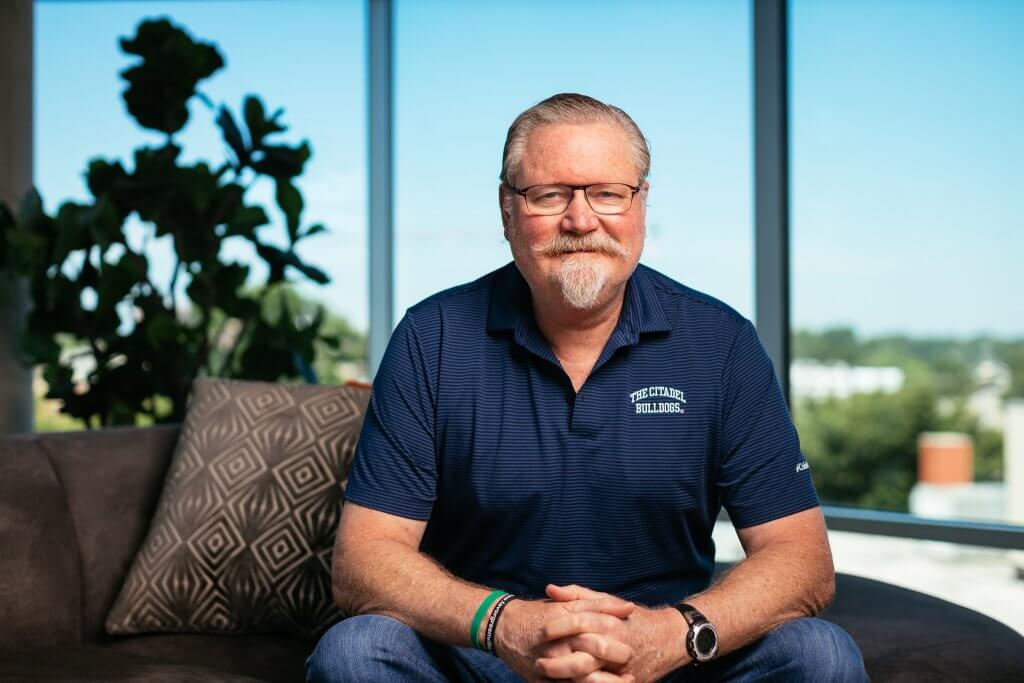
Sterling likes to tell his employees that they can live in the South Pole, for all he cares. “Just as long as you are on the 8 AM call every morning and get your work done,” he stipulates, “it doesn’t matter.”
Sterling admits that, at first, he had a tough time with work-from-home. As a member of and mentor with Greenville’s NEXT organization, he is accustomed to working in collaborative, shared office settings where people are constantly exchanging ideas and feedback. He says NEXT’s incubator-style space was a game changer for Foxfire when it was a small startup, but as the team became more and more geographically dispersed, they needed to look at other options.
Now that Sterling has adjusted to working from home, however, he has noticed a tremendous improvement in his productivity. “I love bouncing ideas off people,” he says. “But working from my condo in my little home office has forced me to focus.”
Sterling notes that this level of focus is impossible in a big office environment, where you’re constantly getting pulled in a million different directions. He is certainly familiar with this type of setting. During his days at Datastream, he worked in an office that held over 500 people.
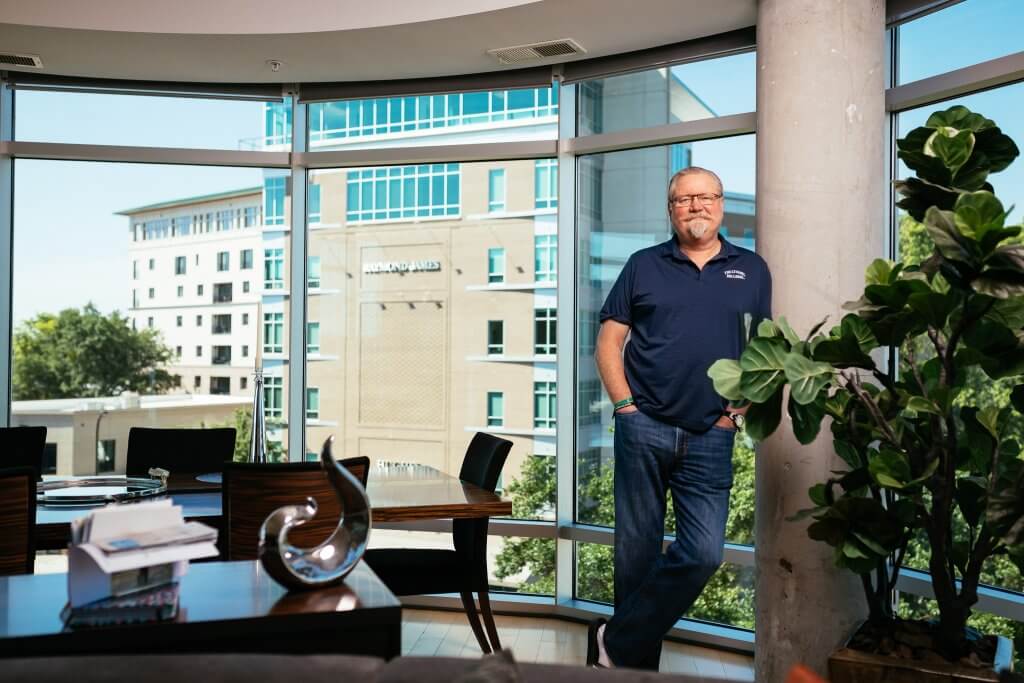
“Let me tell you – you can have a full day’s worth of things to get through, but as soon as you step into a 500-person office, you might not do any of them,” Sterling says. “There’s going to be a series of emergencies and problems and ideas that always need your attention.”
Now that he is working from home, Sterling is able to spend his days more proactively and work through a prescribed daily agenda of tasks and projects. And as an added bonus, he doesn’t have to worry about being the “jackass” who puts in his headphones and closes his door to keep people from bothering him.
Despite the productivity and flexibility he and his employees enjoy, however, Sterling certainly recognizes that there is one major challenge in making the transition to remote work: maintaining a strong team culture.
In order to maintain a sense of “togetherness” amongst his team, Sterling leads two virtual check-ins a day. He spends at least five minutes at the beginning of each call just chatting – asking people how they are doing, how their kids are, and what’s going on in their respective cities. “And we don’t do much else,” he says, “but that’s the point.”
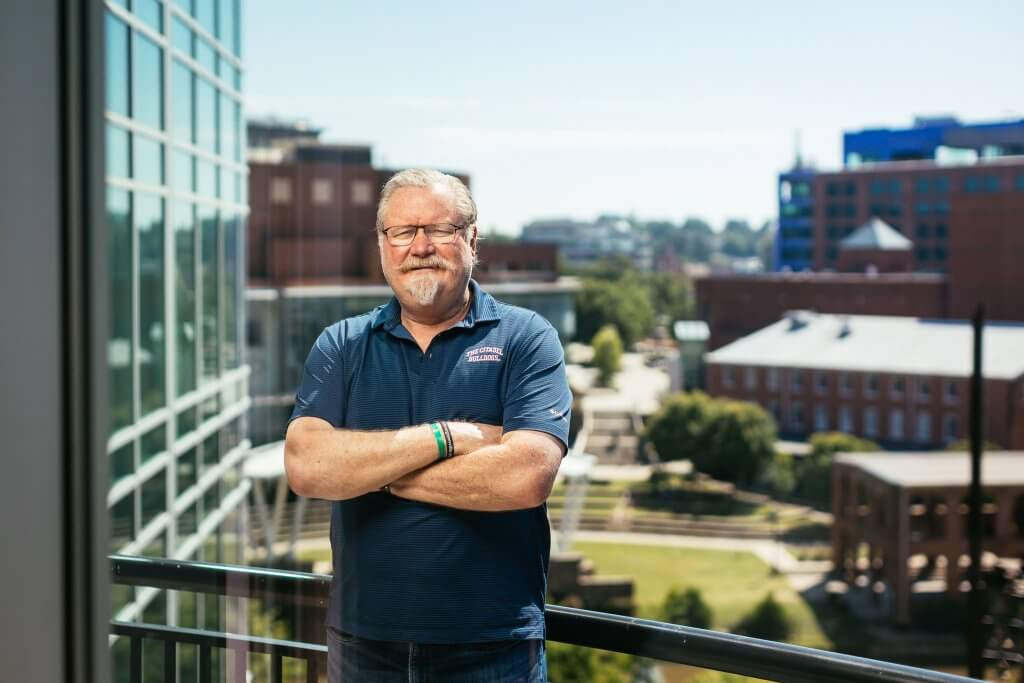
Although he has not yet practiced this himself, Sterling also advocates for getting everyone together once a twice or year in person, just to have some fun and get to know each other. Unfortunately, however, large company gatherings like these may not be possible for months to come.
Like many business leaders, Sterling believes the new standard for work amidst COVID-19 will be “work-from-office-optional,” meaning that employees will have the option to either work from home or from the office. “I think people will be expected to work remotely, but companies will have a place for them to come if it’s a meeting day or if they just need to get away from the house,” Sterling says.
Ultimately, Sterling recognizes that switching to fully remote work isn’t possible – or simply isn’t wise – for every business, regardless of the COVID-19 pandemic. “If you’re considering it,” he advises, “I would say try it for a week or two weeks and see how it goes. It’s not right for everyone. It just turned out to be right for me.”
Follow John on LinkedIn, or visit Foxfire on the web at FoxfireSoftware.com.
Designli leads clients through the design and development of complex digital products, bringing startups and entrepreneurs from “Vision to Version 1.” Ready to bring an app or web-app to life? We’re here to help.
The Founder Factor is brought to you by Designli (South Carolina’s top app development firm) and Word of Web (your partner in website strategy and design). Follow our content here on the Designli blog, or on YouTube, Spotify, or wherever you get your podcasts.
Subscribe to our newsletter.

5 min read
Yesflow CEO Scott Millwood explains how tech startups can use codeless mockups to build customer loyalty and user engagement. This post is...

Most people know John Moore as a Founder and former CEO of NEXT Upstate, a nationally-recognized entrepreneur development organization that has...
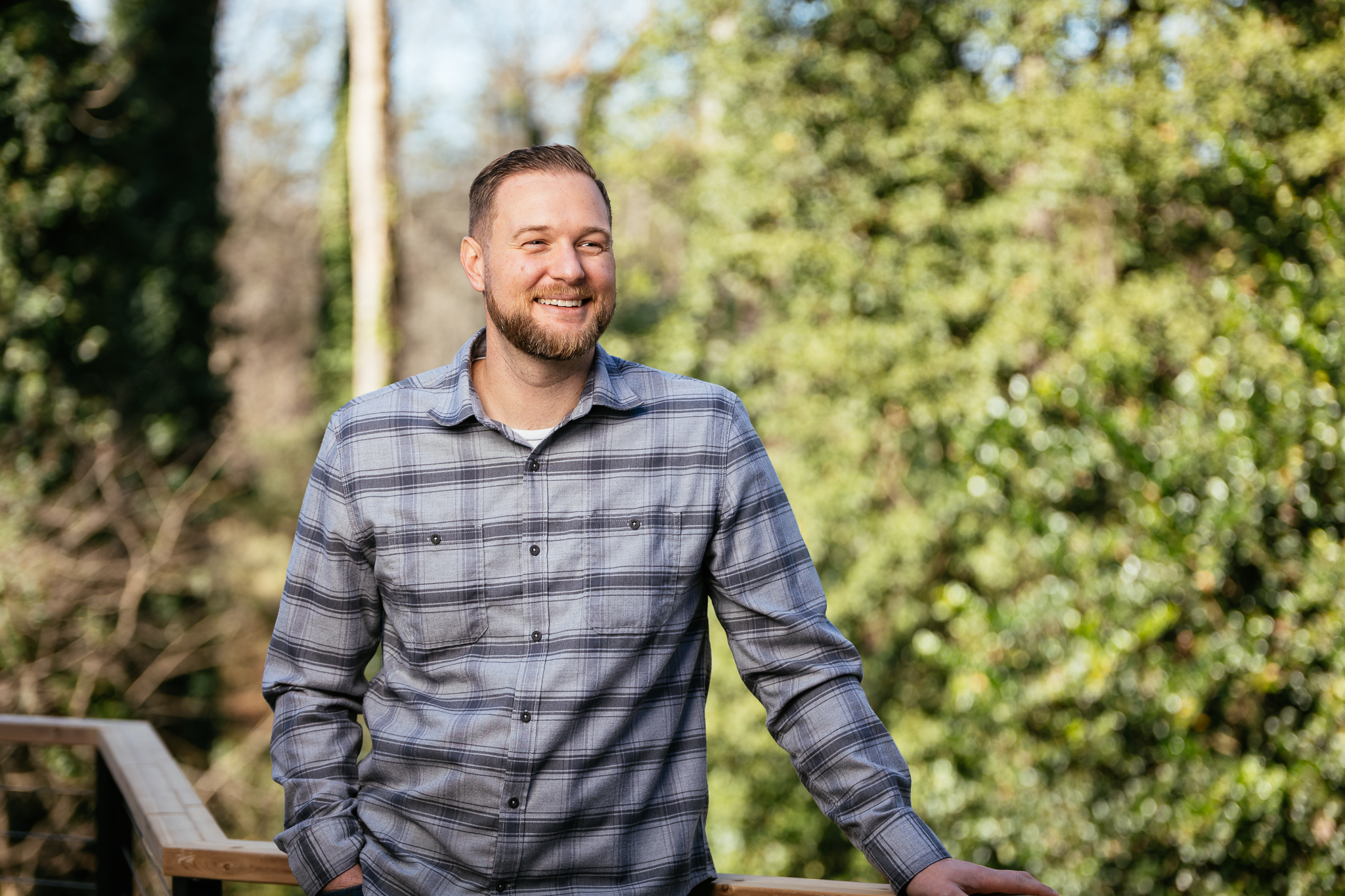
“In the beginning, I had a lot of doubts,” Derek Pedersen says. “I didn’t know if all my effort was for nothing. But I wasn’t willing to quit. I had...
Post
Share